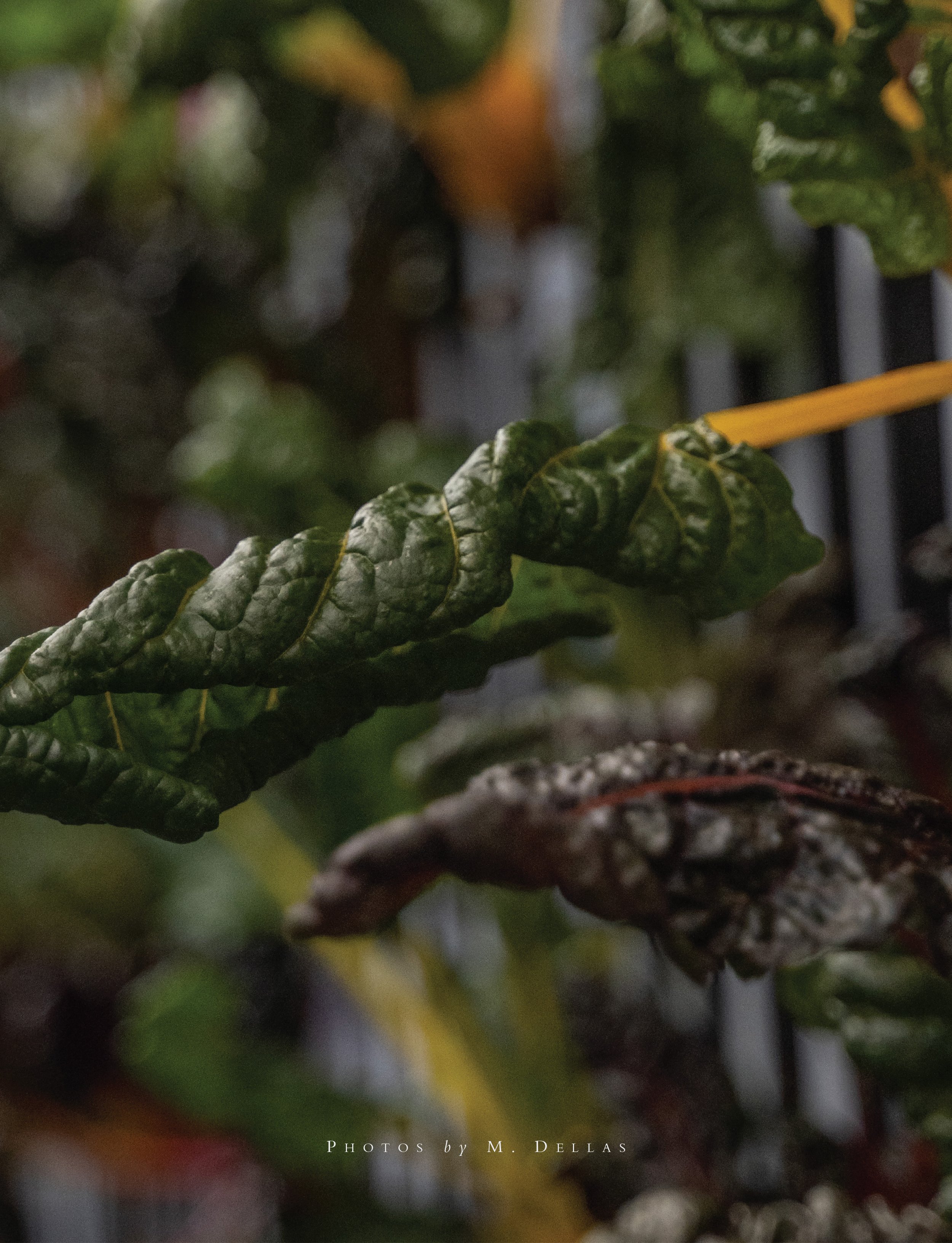opening doors
FeedMore WNY is best known as the emergency food provider for Western New Yorkers during times of crisis. The organization is quietly working to solve the problem of food access in the community. Emblematic of that resourcefulness are the agency’s Farm Market trucks. The vehicles, which are part food truck and part farmers market, bring affordable produce to underserved communities that have trouble getting fresh, nutritious food. Much of the produce is grown locally and sourced through Eden Valley Growers, Cornerstone Orchards, and Providence Farm Collective, a nonprofit that supports immigrant farmers.
FeedMore also grows some of the produce, but not in a conventional way. Parked near the nonprofit’s office building on James E. Casey Drive sit two 40-foot shipping containers. Inside the containers are hydroponic farms that operate year-round. Crops grow vertically in large panels suspended from the ceiling. Water and nutrients are pumped directly to the roots while an array of LED bulbs in hues of pink and purple provide heat and light. The program began as a research collaboration in 2020. Funded by the New York Power Authority’s Environmental Justice Program and led by the Electric Power Research Institute, the farm produced kale for its first year, studying the efficacy of the indoor growing method. It has since expanded to include other produce like Swiss chard, bok choy, and even edible flowers.
Creative solutions like Feedmore’s Farm Market trucks and shipping container farms are necessary in a region where an estimated 164,830 people live with food insecurity.
“Being food insecure does not mean you are hungry,” Tara A. Ellis, FeedMore WNY President and CEO says. “Food insecurity is different. It means you do not have consistent access to enough nutritious food to maintain a healthy and active lifestyle.”
According to Feeding America’s most recent Map the Meal Gap study, over 12 percent of individuals in FeedMore’s four-county service area are considered both food and nutritionally insecure. That’s 25 percent higher than the New York State average, and the number is even worse among children.
“That is significant because food insecurity can have lifelong consequences,” Ellis says. “Food insecurity is a contributing factor in diet-related diseases like hypertension, diabetes, and obesity.”
In 2021, FeedMore WNY, Catholic Health, and D’Youville University worked together to launch a holistic program designed to jointly address food insecurity and health disparities. The program, known as the Food Farmacy and located at Sisters Health Center on the D’Youville campus, allows primary care physicians to refer patients at risk for food insecurity to a pantry where they can receive nutritional food, ongoing health education, and necessary support to improve their overall health. In its first year, the Food Farmacy distributed enough food for over 17,000 meals.
FeedMore WNY’s mission is to “offer dignity, hope, and a brighter future by providing nutritious food, friendship, and skills training to our Western New York neighbors in need.” The organization has been around since 2019, the result of a merger between Meals on Wheels for WNY and the Food Bank of WNY. Together, the two organizations have more than 90 years of experience feeding Western New Yorkers and their legacy services remain pillars of FeedMore’s work today. In the FeedMore commissary, hot and cold meals, more than 5,000 in total, are prepared each weekday to continue Meals on Wheels efforts. Volunteers deliver the meals to homebound clients in Erie, Niagara, and Chautauqua counties. Meals are also delivered to congregate dining sites in Erie County where seniors eat together. In the FeedMore warehouse, the food bank program distributes more than 17 million pounds of nutritious, fresh, and shelf-stable foods yearly to nearly 400 pantries, soup kitchens, emergency shelters, and other hunger-relief agencies throughout Erie, Niagara, Cattaraugus, and Chautauqua counties.
With roots firmly planted as the region’s food safety net, FeedMore WNY is also working to address issues that lead to food insecurity. Through a workforce development program called RISE–Readying Individuals for Success and Employment–FeedMore provides job-related skills to people with high barriers to employment. In the free eight-week program, participants receive hands-on warehouse and logistics training in the FeedMore WNY warehouse.
Graduates leave the program with certificates in logistics, equipment operation, and food handling. In addition, participants learn about financial literacy and nutrition and receive help with resume and interview preparation. While the current program focuses on warehousing and logistics, FeedMore WNY hopes to expand RISE to include food truck driver training, hydroponic farming education, and a culinary program.
Whether it’s opening doors to healthy and nutritious food or opening doors to better employment opportunities, FeedMore WNY is finding new and innovative ways to provide brighter futures for thousands of people in the community every day.



